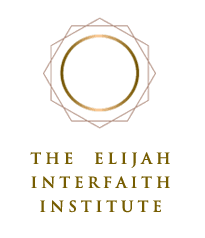At a time of great turmoil for UNESCO, following the announcement of the US withdrawal and of Israel’s plans to follow suit, and following the new Director General elect, Ms. Audrey Azoulay who has called for reforms at UNESCO, a group of 15 UNESCO affiliated scholars convened in Jerusalem to analyze what exactly was wrong with UNESCO’s decision-making regarding Jerusalem and the Holy Basin.

The group, organized by Prof. Alberto Melloni of the University of Bologna and Dr. Alon Goshen-Gottstein of the Elijah Interfaith Institute, Jerusalem, convened in Jerusalem, October 17-18, for a conference titled – Naming the Sacred.
The 15 UNESCO academic chairs, spanning the entire globe, from New Zealand to Oregon, studied the history of how sites whose history has been preserved and respected through changes in empire and ruling parties, as contrasted with instances in which historical memory has been obliterated. Based on the study of ancient Roman habits, the tradition of Turkish and British rulers and a broad historical survey, they concluded that UNESCO’s recent Jerusalem decisions resemble most closely Stalinist policies, of wiping away Christian holy sites, and seeking to replace them with soviet-affiliated content.
Such a procedure can be understood when practiced by a political power, stated Melloni, but is totally inacceptable when it comes to an international body entrusted with the preservation of historical memory and culture, associated with religious sites. “Applying the power of political pressure to holy sites undermines UNESCO’S credibility.”
Participating scholars noted that what characterizes Jerusalem is the complexity of its history. “To apply a simplistic and one-sided view to a complex historical situation will never allow us to move forward. It will only perpetuate the present stale-mate. Only a complex and multi-faceted approach has the chance of making a meaningful contribution to the preservation of holy sites and to advancing what UNESCO calls a “Culture of Peace”, stated Goshen-Gottstein.
The UNESCO scholars issued a call to UNESCO in which they suggested a new methodology for how decisions should be made in situations of religious conflict and disputed memories. UNESCO has the resources, through its scholars, to offer a fair-minded historical description, that takes into account the multiple narratives of communities in conflict. Scholarly positions must provide the foundations for UNESCO deliberations if it seeks to rebuild its lost credibility.
At a press conference in the Jerusalem Press Club, the UNESCO chairs were asked whether there really was a chance of reversing the tide at UNESCO. Steven Shankman, of the University of Oregon, highlighted the value of international organization and the dangers of a world in which global cooperation is undermined. “The Director-General elect seems to have the will to bring about transformation. It is not enough to point out the faults in UNESCO procedures. We, UNESCO academic chairs can critique, but we can also point the way forward. Our call is not only a voice of academic criticism; it is also a message of hope for the future of UNESCO.”
Statement of UNESCO Chairs on UNESCO’s decisions on Jerusalem
We, a group of UNESCO Chair-holders from countries around the world, met in Jerusalem October 15-18 to discuss the UNESCO decisions on religious heritage sites in Jerusalem.
The meeting was called to respond to the recent UNESCO decisions and the crisis they have generated, a crisis that goes to the very heart of the UNESCO World Heritage process and the credibility of UNESCO itself.
The UNESCO decisions on the holy sites in Jerusalem have failed to draw on expert scholarship and knowledge.
The reality in Jerusalem is complex. Complexity is the solution, not the problem. To understand the multi-layered situations and to avoid simplistic, inadequate and divisive responses that can, and do, have harmful consequences, scholarly expertise is required.
In response to the present crisis we recommend the following:
- A new process be developed so that UNESCO maximize its resources and potentialities, especially by consulting its academic chairs with relevant expertise.
- Such consultation must precede decisions made by the organization to ensure decisions and recommendations are made in an informed manner, as befits UNESCO.
- Such consultation must bring to light the following essential principles:
- Any representation of a situation of conflict, especially one with deep and intertwined histories, must accurately reflect the multiple narratives of those involved.
- To be effective, it must be based on all sides feeling they have been heard and for processes of understanding to emerge out of fair-minded, historically balanced presentations of all sides to a conflict.
Our collective concern is that the current processes and decisions have already damaged the international reputation Of UNESCO and its efficacy and that only by addressing these issues can future harm be avoided and UNESCO regain its voice and position in relation to world religious heritage sites.
Our statement is a voice of concern and hope for the future of UNESCO.
19 October, 2017
Jerusalem, Israel
Signed (in alphabetical order):
Munzifakhon Babadjanova, Chair for Intercultural Dialogue in the Modern World Russian Tajik University, Dushanbe, Tajikistan
Wolfgang Dietrich, Chair for Peace Studies, University of Innsbruck, Austria
Aviva Doron, Chair for Intercultural and Interreligious Dialogue, Haifa University, Israel
Lidija Georgieva, Chair in Intercultural Studies and Research, the University St Cyril and Methodius, Skopje, Macedonia
Alon Goshen-Gottstein, Chair in Interfaith Studies, Jerusalem, Israel
Roger K. Koudé, Chair of Memory, Cultures and Interculturality, Catholic University of Lyon, France
Alberto Melloni, Chair for Religious Pluralism and Peace University of Bologna, Italy
Paul Morris, Chair in Inter-Religious Understanding and Relations in New Zealand and the Pacific, Victoria University of Wellington, New Zealand
Efim Rezvan, Chair for inter-religious dialogue for inter-cultural understanding, Russian Academy of Sciences, St. Petersburg, Russia
Steven Shankman, Chair for Transcultural Studies, Interreligious Dialogue, and Peace at the University of Oregon, U.S.A.
Emilios A. Solomou, Chair, University of Nicosia, Cyprus
Priyankar Upadhyaya, Chair for Peace and Intercultural Understanding at the Banaras Hindu University, India
